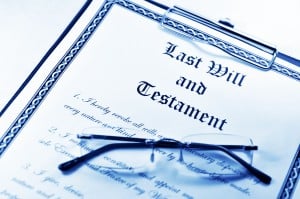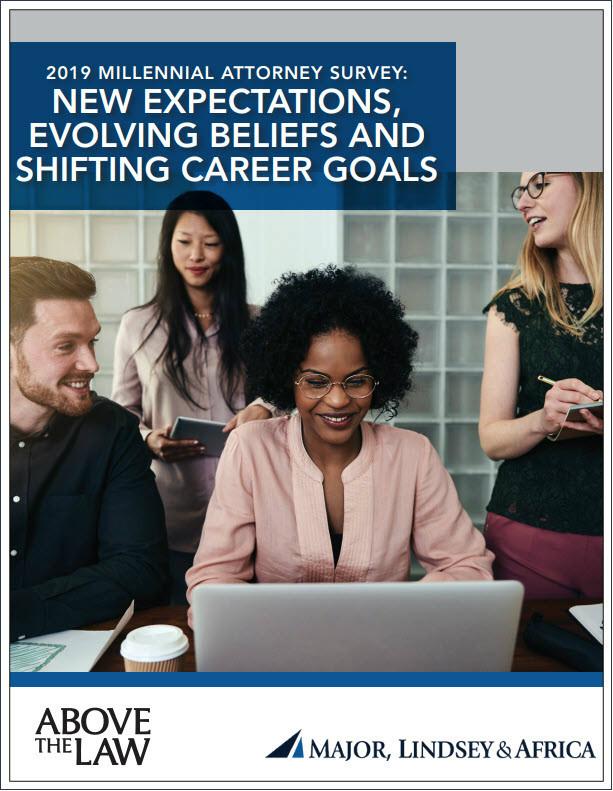
(Image via Shutterstock)
When I was growing up, my parents were New York City school teachers. Although I admired their level of education and commitment to children, I never thought of their career choice as a brave one, unlike many of my peers whose parents were police officers, fire fighters, and health care workers. My parents were teachers, who worked reasonable hours, had funny stories of their classroom experiences, marked papers, inspired students, coached after-school activities, and were off in the summer, except of course when they worked summer school. It was a mostly safe job, and one that my peers and I were all encouraged to consider.
As an attorney, however, it concerns me, that multiple news outlets are reporting that as a result of COVID-19, teachers are fearing death so much as to write their last wills and testaments. When did teaching become a profession wherein the risk for death was palpable? We have known about certain schools with metal detectors. We also have witnessed mass shootings in schools across the nation. But now, the fear of death from COVID-19 is pervasive.
I am always happy to hear that people want to take responsibility and make a last will and testament. It’s an easy task to complete and, although possibly hard to get started, you will feel calm and content once it is finished. There is a misconception that last wills and testaments are only necessary for the wealthy. Some think they do not need one if they do not have children, or a spouse. More believe that a last will is only needed when you age, and it becomes more likely that you will die. So many individuals put off writing their last will and testaments until they are retired along with their required minimum distribution and move to Florida.
Anyone over 18 needs a last will and testament, regardless of level of wealth, marital state, or number of children. When you die without a last will, the state intestacy laws determine who gets your estate, and that individual may not be whom you want — or even know, in the case of first cousins once removed. If you have children, without a last will, a local probate judge will determine the guardianship of your kids, and while you may hate your in-laws, they may make a lovely case to the judge as to why they should raise your family.
COVID-19 has made death a reality for many who never thought about it before. Younger generations are now contemplating their estate plans, as they see their peers succumb to illness. Teachers are especially affected by the pandemic, as their jobs require in-person contact with children, who have been shown to be carriers of the virus. Remember when everyone in your first-grade class got chicken pox? Or half the grade was out because of the flu? School districts around the country are rushing to implement plans for classroom structure during the age of COVID-19. But is it enough? Will the teachers (and children) be safe? Some districts and educational institutions are permitting long-distance learning or some kind of hybrid method. The federal government maintains that a plan for reopening school should be left to states and school districts.
For teachers who have been socially distancing for the past several months and exercising great care, heading back to school is a cause of great anxiety. Not only will they expose themselves, but they can bring the virus into their own home and expose others.
In addition to last wills and testaments, many teachers are also considering supplemental insurance plans, living wills, and powers of attorney. From a professional lens I am pleased to see individuals doing that which they should do, under any circumstance. I cannot deny, however, that in the wake of fear and danger, clients are prompted to take care of their affairs. Often I receive phone calls from scared parents heading out on solo vacations or individuals newly diagnosed with a harmful disease. The COVID-19 pandemic is no different. Individuals are putting themselves in inherently dangerous situations and, therefore, want to prepare for the worst-case scenario, which unfortunately in this case is more than possible. As practitioners, we can take care of the estate planning. It is up to our governments, however, to avoid unnecessary death.
Cori A. Robinson is a solo practitioner having founded Cori A. Robinson PLLC, a New York and New Jersey law firm, in 2017. For more than a decade Cori has focused her law practice on trusts and estates and elder law including estate and Medicaid planning, probate and administration, estate litigation, and guardianships. She can be reached at cori@robinsonestatelaw.com.















 Get a better starting point with attorney created legal documents, checklists, guides and more. »
Get a better starting point with attorney created legal documents, checklists, guides and more. » Gain a clear strategic advantage with the fastest answers and most valuable insights. »
Gain a clear strategic advantage with the fastest answers and most valuable insights. » Simplify your matter management, client communication and financial reporting in one seamless tool. »
Simplify your matter management, client communication and financial reporting in one seamless tool. »